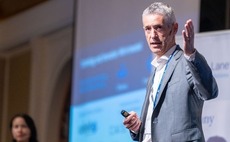
LP interview: International Finance Corporation
The International Finance Corporation helps emerging managers in frontier markets get off the ground. However, the current priority is to back more established managers in more established markets
At $2.55 billion, CDH Fund V is the largest-ever private equity vehicle to receive a commitment from the International Finance Corporation (IFC), the investment arm of the World Bank.
The IFC board approved an allocation of up to $75 million in the China-focused GP's fund in January 2014. A further $25 million went into a co-investment vehicle dedicated to supporting companies owned and managed by women - a strategy very much within IFC's developmental remit. Nevertheless, the decision to back CDH Fund V represents a shift in focus for the organization.
"In the past, when funds grew quite large, raising $750 million or more, we would drop out," says Ralph Keitel, regional lead for East Asia in IFC's private equity funds group. "But now the tide is turning, given that sentiment for emerging markets is less positive. So while it may have been a good idea to back more first-time managers in frontier markets during the emerging markets boom of the past decade, we believe that there is a role for us in the future to stick a bit longer with established managers, even in the more established markets."
IFC was an early backer of CDH. It is an example of a small number of now well-established emerging markets fund managers that created more than 500,000 jobs through their early funds. East Asia, and China in particular, has produced some of the top-performing managers in the portfolio.
Refocusing on China is also an acknowledgment of changing industry dynamics. When PE fundraising in the more advanced emerging markets took off a few years ago, IFC naturally withdrew. Rather than compete with private sector capital for space in funds, it turned its attention to geographies that were receiving less money. Now, however, the fundraising environment has become more challenging.
"In the more developed markets like China there are good mid-market firms raising their second or third funds but they don't have enough realizations in their existing portfolios," says Keitel. "There is private equity capital available for China but with some emerging managers there is still a role for a DFI [development finance institution] like IFC."
IFC by numbers
IFC is the world's largest private sector-only DFI. Its portfolio is worth $51.7 billion, of which $13.8 billion is deployed in Asia. In the 2014 financial year, IFC invested $17.3 billion, with East Asia and the Pacific accounting for $4.2 billion and South Asia for $1.9 billion. The private equity funds program was created in 2000 and looks to commit $1 billion per annum, half from IFC's own balance sheet.
The objective is to secure financial returns and make a developmental impact, creating jobs in emerging markets but also addressing strategic bottlenecks in areas such as agriculture, healthcare and infrastructure. Across mid-market private equity, venture capital and a dedicated frontier markets program, IFC commits to 20-25 funds each year.
"We divide the emerging markets world into five regions so that equates to roughly $100 million each," Keitel explains. "We then adjust this allocation up or down depending on the quality of deal flow we see and where markets are in their cycle. This year, we expect to be overweight Asia, and will probably deploy as much as $150 million in East Asia simply because we are looking at a large number of good-quality funds and also because not all our proposed funds last fiscal year closed as planned."
IFC's typical target in the region could be described as a lower middle-market manager seeking to raise $100-300 million for its second institutional fund. Access to proprietary deal flow and a strong alignment of interest between LP and GP are attractive propositions, but IFC also likes to be an influential investor in the fund: shaping the terms and investment focus, and ensuring compliance with best practice on environmental, social and governance issues.
Diligence factors
The organization has backed 10% of all emerging markets fund managers outside of China since 2000. In many cases, its presence makes the difference between a fund reaching a first close and not reaching it. While IFC is reassured by having fellow DFIs such as DEG and FMO alongside it as LPs, there is a preference for private sector participation as well. This may not come until after the first close, but it serves as a market validation.
IFC has 20-25 people covering private equity globally, five of whom are responsible for East Asia. This headcount is higher than for many LPs, but the kinds of GPs they back - relatively young managers, often operating in frontier markets - would not even be considered by the average US pension fund.
"Team members may have previously worked together in some form or another, but there is no joint institutional track record," Keitel notes. "Making sure that individuals have the requisite experience and know-how as well as access to good quality deal flow takes a lot more effort."
When operating in less developed markets, IFC not only has to get comfortable with the standard of governance but also with the availability of investments. In this context, sector specialization within the GP community is encouraging, provided there is sufficient scale and sustainable deal flow.
"We don't necessarily think specialization makes sense in smaller economies if there are not enough high quality deals available to provide for selectivity. In China it does make sense. And we like it because our strategic priorities shift and we pay a lot of attention to things like education and healthcare," says Keitel.
Latest News
Asian GPs slow implementation of ESG policies - survey
Asia-based private equity firms are assigning more dedicated resources to environment, social, and governance (ESG) programmes, but policy changes have slowed in the past 12 months, in part due to concerns raised internally and by LPs, according to a...
Singapore fintech start-up LXA gets $10m seed round
New Enterprise Associates (NEA) has led a USD 10m seed round for Singapore’s LXA, a financial technology start-up launched by a former Asia senior executive at The Blackstone Group.
India's InCred announces $60m round, claims unicorn status
Indian non-bank lender InCred Financial Services said it has received INR 5bn (USD 60m) at a valuation of at least USD 1bn from unnamed investors including “a global private equity fund.”
Insight leads $50m round for Australia's Roller
Insight Partners has led a USD 50m round for Australia’s Roller, a venue management software provider specializing in family fun parks.








